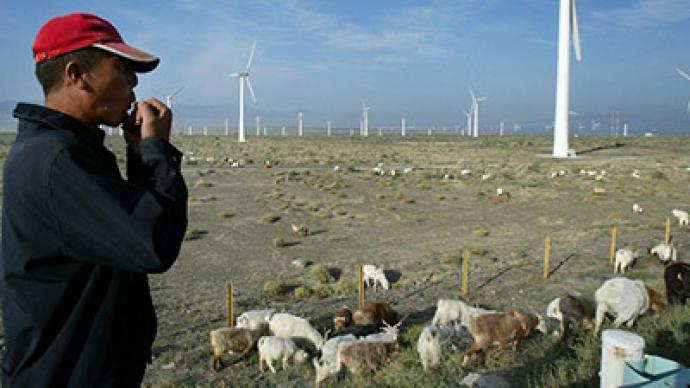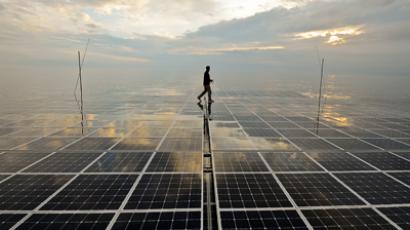Chinaphobia: Obama blocks Chinese wind farm over nearby drone base, citing 'national security'

For the first time in 22 years, a US President has ordered a foreign company to abandon an American investment. President Obama blocked a Chinese company from developing a wind farm in Oregon, citing its proximity to a naval base that tests drones.
On Friday, Obama ordered Ralls Corporation, a company owned by Chinese nationals, to liquidate its holdings in a wind farm purchased earlier this year. The US President justified the decision through a rarely used authority provided to his office by the Committee on Foreign Investments in the United States (CFIUS). Ralls is connected to the Sany Group, China’s largest construction equipment manufacturer. The wind farm in question was slated to be built near the Naval Weapons Systems Training Facility in northern Oregon, which has been used as a testing ground for US fighter jets and drones. The CFIUS revealed their investigation into Ralls in September, after it announced its purchase of local assets earlier this year with the stated intent of developing the wind farms. Ralls did not voluntarily report its purchase to the CFIUS, but the committee has the authority to review all foreign purchases in the US.On Friday, President Obama shut the project down: "There is credible evidence that leads me to believe" that Ralls, Sany and the two Sany executives who own Ralls "might take action that threatens to impair the national security of the United States," Obama said in statement accompanying the order.Neither the White House nor the CFIUS specified the nature of the alleged national security risks.Presidential intervention based on CFIUS reports is rare. The last time a US President intervened was in 1990, when President George H. W. Bush voided the sale of Seattle-based MAMCO Manufacturing to a Chinese agency.The move comes at a risky time for US-China trade relations, and also during the run-up to the US presidential election in November. Obama’s opponents have criticized him as being soft on China, and the order could be a way for Obama to deflect those charges by appearing tough on China in a one-time decision, without setting a precedent that could damage trade relations.“The President’s action demonstrates the Administration’s commitment to protecting national security while maintaining the United States’ longstanding policy on open investment,” the US Treasury Department said in a statement following the order. “The President’s decision is specific to this transaction and is not a precedent with regard to any other foreign direct investment from China or any other country.”The Treasury Department’s statement claimed that “The wind farm sites are all within or in the vicinity of restricted air space.” However, Ralls was quoted in a Reuters report as saying that only one of its four wind farms are in restricted airspace, despite the blanket order by the CFIUS for Ralls to divest itself of all four sites. Lawyers representing Ralls also argued that a Danish and a German company both operate wind farms in the area as well.“The project poses no national security threat whatsoever, and the President's order offers no explanation otherwise,” Ralls' lawyer Tim Kia said in a statement. “The president's order is without justification, as scores of other wind turbines already operate in the area where Ralls's project is located." The Chinese company now has 90 days to divest itself of all its holdings in the four projects.














